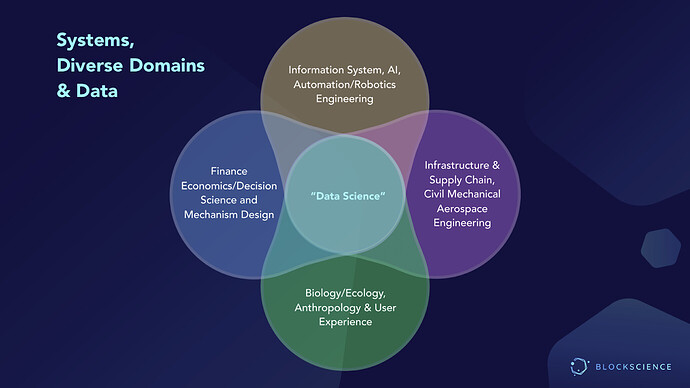NumFOCUS Donation:
Putting Our Money Where Our Mouth is with Regard to Supporting Open Source
TL;DR
- The Token Engineering Commons believes that web3 enables communities to come together to support the open source resources those communities use
- The Practice of Token Engineering relies a wide range of open source data science tools, including numpy, scipy, jupyter notebooks, and so much more
- Numfocus is a non-profit that provides funding and support for the open source organizations which maintain this software, but these organizations are criminally underfunded by the web2 organizations which profit massively by their use
- The Token Engineering Commons has a unique opportunity to differentiate itself and serve as a guiding example of how web3 doesn’t just talk about supporting open source, we do it.
- A 25,000 xDAI donation to Numfocus is proposed with the guiding principle of funding small developer grants and special projects aimed at growing the intersection of token engineering and open source scientific computing software.
Proposal description
The TEC community believes that web3 enables communities to come together to support the open source resources those communities use. As one of the creators of cadCAD, and a user and fan of TokenSpice. I can personally say that the Practice of Token Engineering relies on a wide range of open source data science tools, including numpy, scipy, jupyter notebooks, and so much more.
Numfocus is a non-profit that provides funding and support for the open source organizations which maintain this software, but is criminally underfunded by the web2 organizations which profit massively by their use. The Token Engineering Commons has a unique opportunity to differentiate itself and serve as a guiding example of how web3 doesn’t just talk about supporting open source, we do it.
In my opinion making this donation is a matter of showing that we live by our values. While its wonderful that we are funding a wide range of open source research and development projects by community members of the TEC, if we really believe outside communities who use our work products should fund us, then it is necessary that we fund the projects whose work products we rely on. We are particularly fortunate that NumFocus has such a broad purview; the projects they support represent a carefully curated selection of the most critical open source data science initiative. As the TEC we can learn from them.
The funds from this project will be transferred to a multisig under the control of Numfocus with myself and Trent included as additional keyholders in order to provide support as needed. The funds will be used for small developer grants and special projects aimed at growing the collaborative space between Numfocus supported open source projects and web3. Furthermore, I hope this grant will serve as the beginning of a fruitful relationship; the TEC has knowledge to offer regarding web3, but Numfocus has a wealth of experience with regards to sustaining open source.
Additional information to add
For more information about NumFOCUS see:
How does this proposal benefit the community and/or the field of Token Engineering?
NumFOCUS provides fiscal sponsorship, financial support and organizational support for a wide range of open source projects which collectively provide critical infrastructure for the practice of token engineering.
Source: On The Practice of Token Engineering I
Amount requested (Only for Conviction Voting)
$25,000 xDAI is requested
Funds will go to gno:0xD42523C88Aaa2A40Cf48940BC678Ba1FC88b8DdA
Which is a Gnosis Safe multisig under control of the NumFocus Foundation
How will these funds be used? (Only for conviction voting)
These funds will be used at the discretion of the NumFocus Foundation with advice process available from Michael Zargham and Trent McConaghy on behalf of the TEC.
The small development grants program at NumFOCUS has been identified as an existing mechanism for rewarding contributors. To the extent possible funds will remain within the web3 ecosystem.
How will you share progress?
Progress updates will be shared on regular NumFOCUS channels per their existing processes. An overview of preliminary outcomes of this initiative will be posted in the TEC forums after 6 months; further updates will be posted as appropriate.
Project information (if applies)
Team Information
Michael Zargham - grant proposer (Founding Member, Token Engineering Commons)
Travis Oliphant- grant proposer (Founding Member, NumFOCUS)
Leah Silen - grant advisor (Executive Director, NumFOCUS)
Trent McConaghy - grant advisor (Founding Member, Token Engineering)
Thanks to Jeff Emmett, Jess Zartler, and Terry Foor for you your support in assembling this proposal.
Complementary information
Here are a handful of articles from the early days of Token Engineering which helped to define the nascent field. They provide a reminder of the foundational methods and tools that Token Engineering builds upon.

